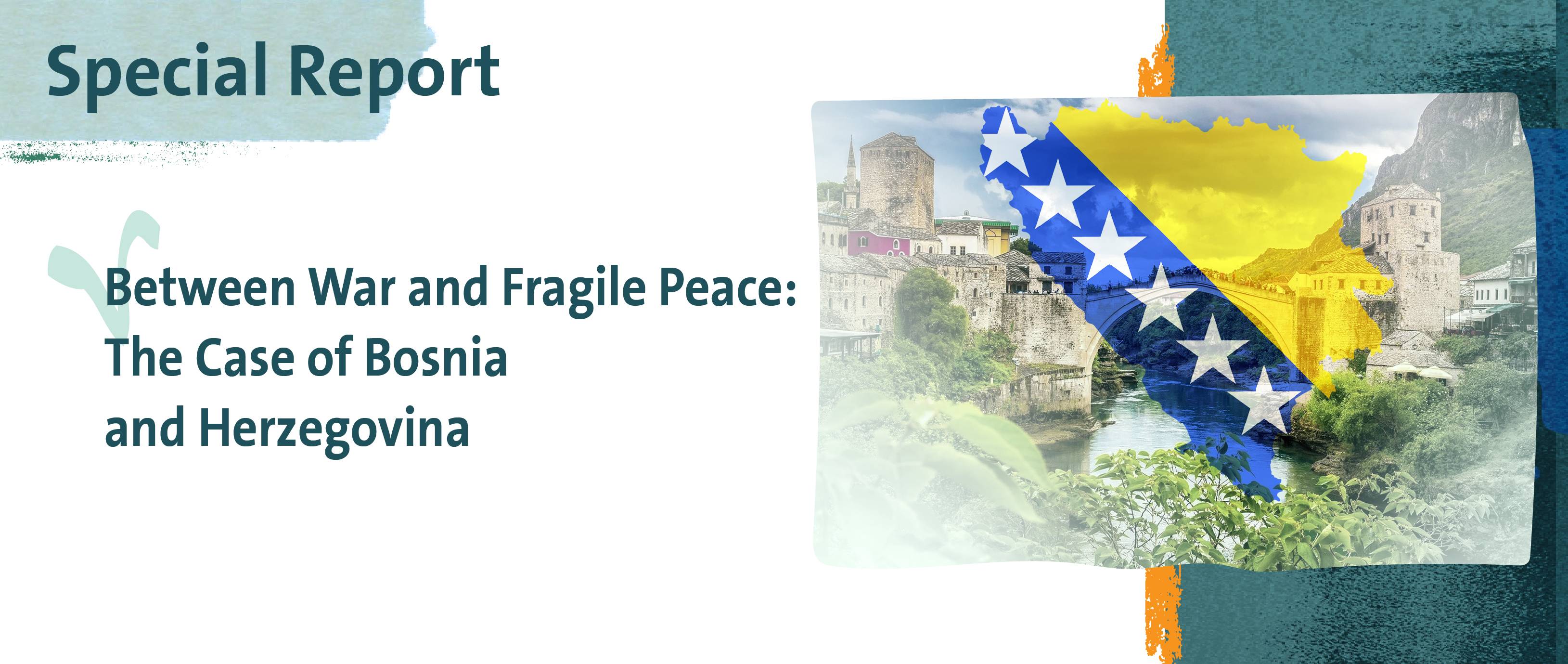Between War and Fragile Peace: The Case of Bosnia and Herzegovina
Embodying the very notion of the "Balkanization" of politics, Bosnia and Herzegovina today rests on a fragile peace agreement originally envisioned as its first step toward long-term stability. With a constitution that recognizes only three national groups (Muslim Bosniaks, Catholic Croats, and Orthodox Serbs) – thereby excluding the other ethnic groups that reside in the country from effective political participation – the country's highly complex system of governance has limped on, guided by an internal arrangement that divides power along ethnic lines. This arrangement has hindered all attempts to change the fragile status quo and achieved little beyond sustaining an operating system that is constantly on the verge of collapse. In the face of this fragile peace, Bosnia and Herzegovina appears in suspended animation, unable to advance its long-term aspiration to join the European Union or address its internal strife. Today's fragile peace and the country's internal governance system reflect a peace agreement that institutionalized ethnic categorizations in state-building. As a result, nearly three decades later, local political entrepreneurs have every incentive to leverage ethnic allegiances for narrow ends, hindering political and social progress in the national interest.

